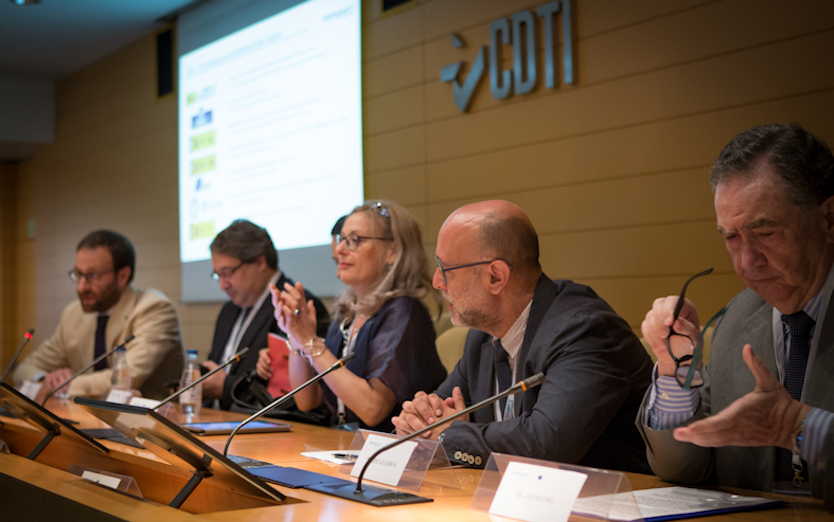Fibreship is an ambitious innovation project that will assist with the development of fundamental technologies for the future of the European composite shipbuilding industry. It will enable the construction of ships over 50 metres in length (including inland waterways vessels), using only composite materials (FRP) with the intention of overcoming the current challenges and technology gaps which are found in conventional shipbuilding.
The Project has been kicked off in Madrid (Spain), at the headquarters of the Centre for Development of Industrial Technology (CDTI), by Clara Eugenia García, General Director of Science and Innovation Spanish Ministry of Economy, Industry and Competitiveness (EIC); José Luis García Lena, General Director of Security, Pollution, and Maritime Inspection, General Directorate for Merchant Shipping (Spanish Ministry of Development); Renata Kadric the FIBRESHIP Project Officer (EC); Julio Dolado, Delegate to HORIZON-‐2020 Smart Green and Integrated Transport (CDTI); and Santiago Encabo, Senior Project Officer of European Maritime Safety Agency – EMSA. It is one of the largest research projects funded by the EC in is field, with an estimated budget of around €11 million, of which €9 million are funded by the European Union via the Horizon 2020 programme.
The Project Officer (EC), Renata Kadric, highlighted during her speech: “FIBRESHIP is a fundamental project to meet the future needs of European transport, especially in terms of efficiency, safety and environmental commitment.”
Acording to Mrs. Clara Eugenia García (Spanish Ministry of EIC): “FIBRESHIP is a relevant project because it combines three fundamental objectives: research and innovation, increase of industrial competitiveness and public and private collaboration. It meets the market needs.”
Mr. Santiago Encabo (EMSA) noted: “FIBRESHIP faces the need to improve in a fundamental aspect such as safety in the construction of ships with these materials at European level. A challenge that faces the project is that technology moves at a master pace than legislation. Yet, some being made at IMO level with regards the use of FRP by the shipping industry.”
Project manager Raúl Salinas (TSI Engenharia PYME) sees the project as a technically feasible innovative challenge, as well as an opportunity for the European naval industry and the fishing industry to collect data on large composite ships and anticipate benefits Potential for the marine sector:
- A reduction of the structural weight of vessels by 30% to 40%.
- Significant fuel savings from 10% to 15%.
- Increase in cargo capacity by roughly 12%.
- Reduction in maintenance costs by 30%.
- Operating cost savings between 7% for medium-‐sized container ships and 3% for larger vessels.
- Increase in recycling ratio from the current 34% to 75%.
- Greater stability of ships.
- Substantial reduction of greenhouse gases.
- Continuous monitoring of the vessel’s structural health.
- FRP ships do not suffer from corrosion, resulting in a better life cycle performance.
- Better underwater acoustic signature.
- Aesthetically more appealing.

